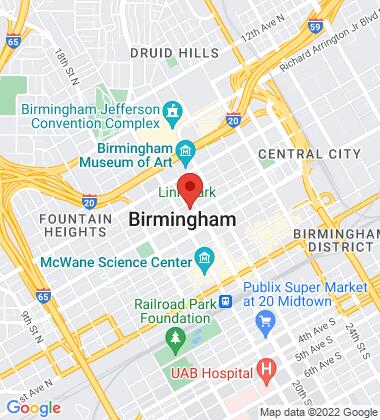From the Arraignment to the Verdict
In Part 1 of this 2-part blog, we discussed Alabama’s criminal justice process from an arrest (or summons) to release. In this second part, we’ll look at the process from the arraignment to the verdict.
Attending an Arraignment
In Alabama, if a person is charged with a misdemeanor or felony their trial cannot begin until they’ve been arraigned (unless they waive this right). The arraignment serves to ensure they know the offense they were accused of and to see if they have an attorney. Additionally, the judge will determine whether or not they are afforded any special benefits because of their age.
At the arraignment, the defendant also has the opportunity to plead:
- Guilty
- Not guilt,
- Not guilty by reason of mental disease or defect, or
- Not guilty and not guilty by reason of mental disease or defect
If the defendant refuses to plead or they plead not guilty, their case will be scheduled for trial.
Discussing Plea Negotiations with the Prosecutor
Another part of the criminal justice process is that concerning plea deals. This entails the defendant and their attorney entering into negotiations with the prosecutor to determine whether or not their case can be settled before going to trial. Often, these bargains will involve pleading guilty to a specific charge in exchange for having other charges dismissed or reduced.
The court has the final say in whether a plea agreement is accepted or rejected.
If the judge rejects the plea deal, they must:
- Let the prosecution and defense know that the agreement was not accepted,
- Inform the prosecution and defense that the court does not have to accept plea bargains,
- Let the defendant know that a guilty plea could result in a more or less favorable outcome than that negotiated with the prosecution,
- Allow the defendant the opportunity to withdraw the guilty plea,
- Allow the prosecutor to change the conditions of the agreement, and
- Allow the prosecution and defense to attempt to negotiate a different plea agreement
Discovery Period
One of the most important steps in the criminal justice process is the discovery period. This allows both the defense and prosecution to gain access to the information the other side has about the case.
Within 14 days of the defendant’s attorney requesting information, the prosecution must provide:
- Documents or tangible evidence related to the case and necessary for building a defense;
- Test and examination results;
- Statements made by the defendant and (if applicable) their co-defendant and/or accomplice
There are some pieces of evidence the prosecution does not have to provide to the defense. However, if it comes to the defendant’s lawyer’s attention that the prosecutor did not comply with the rules of discovery, the court may impose sanctions.
If there was noncompliance during the discovery phase, the judge may:
- Allow the defense to review or inspect the new evidence;
- Grant a continuance;
- Throw out that piece of evidence;
- Impose any other relief option they deem just
The Trial Process
Various processes take place during the trial. Because each case is different, how long a court proceeding lasts depends on the specific circumstances.
The trial will usually begin with the prosecutor making an opening statement and then the defense doing the same. During this time, each will make a case about what they believe the evidence will or will not prove.
In a criminal case, the burden rests on the prosecutor to prove beyond a reasonable doubt that the defendant committed the alleged crime. To do this, they will present various pieces of evidence during the trial. The defense attorney will then work to present their client’s side of the story in a compelling manner and challenge the accusations made against them. This is why the discovery phase is important; it allows the lawyer to spot weaknesses in the other side’s case.
The Verdict
A person’s case may be heard by a judge or jury (factfinder) whose job it is to determine whether or not the prosecutor met their burden of proof. If the factfinder finds that reasonable doubt exists that the defendant committed the alleged crime, they may return a not guilty verdict. Their case will be closed after this.
However, if the factfinder decides that the evidence proves that the defendant was involved in the offense, they may return guilty verdict. In this case, they may be scheduled for a sentencing hearing, which occurs either right after the verdict is delivered or at a later date.
During the hearing, the prosecutor and defense may provide evidence to argue for a lesser or greater sentence. The judge has the final say in what sanctions are imposed for the alleged offense.
Get Aggressive Representation from Tidwell Law Group, LLC
Whether you’ve been accused of a state or federal crime in Birmingham, our attorney is ready to provide the effective defense you need. We understand that the criminal justice process can be complex and overwhelming. That is why we will be by your side every step of the way. Backed by 17 years of experience, we know what it takes to develop an effective legal strategy and seek a favorable outcome.
To discuss your case during a free consultation, call us at (205) 536-7770 or contact us online today.

